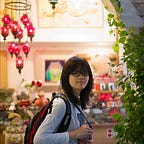Putting Band-Aids on the Digital Landscape
A retrospective from 2027
Fake news, ad blockers. Those are all words that sound distanced today. However, the technology we interact with today was in a very state 10 years ago. Just 10 years ago, the attention economy (a.k.a the addiction economy) incubated several convinient products were offered to the internet citizens for free. But as the saying goes: “If the product is free, then you are the product.” Digital platforms grows and become out of control as they intake more and more data. With the American presidential election in 2016, followed by several data leaks with various silicon valley unicorns helped bury several of those monsters in the tech graveyards.
Tech products launched afterwards were band-aids of the attention seeking economy. We are now seeing different types of digital, and physical add-ons, plugins that give our sanity back. Though taking form slowly, more and more technologists are now understanding the responsibilities they carry and the importance of creating a humane medium, instead of endless imposed environments.
Meet Rasha, a filmmaker who has worked closely with technology companies in making their products friendly and desirable. She has soaked up many publicly unavailable information about how those products monitor the space.
The first time I met Rasha, was when we both attended a small event on the topic of technology band-aids — How might we coexist with technology as if technology is our colleague, instead of a spy, and how can we start taking action today? Rasha shared with us how she has carefully curated her home into a comfortable environment for her. As she worries about her privacy, she has a glass domes that can turn opaque when she doesn’t her nest camera to be watching; she also has a faraday cage for the time that she doesn’t want a home device like her Alexa to be listening. These are physical signals that has helped her to clarify whether technology is eavesdropping on her life or not, at any given moment in her house .
In one way or the other, we have all been inviting autonomous actors that have eyes and ears into not only our lives, but our home. They just stare at us and evesdrop on our lives casually, in a way that has not been helpful.
Rasha call these physical manifestations Technology Band-aids, she acknowledges that these are not perfect, and even makes devices like Alexa less accessible. But the idea of feeling safe is something she is not willing to give away, especially with all of the data breaches that has been happening in the past few years.
With that in mind, Rasha has also shared another series of product she loves. Soft is a phone case and a computer case that would age and rust as it defends for your attention and time. Over the past 20 years, with the launch of the first iPhone, companies has quietly injected convinient technology into lives, making us relying on them while stealing our privacy, attention, and time.
Whether it has been very important events or not-so important events, we would always receive notifications of the same kind from our phones. With helpful plugins such as ad blockers, the counter badge doesn’t help us to conceptualize how much of our attention has bee saved from those cold and looping algorithms. The computer and phone case are made to serve this purpose. Similiar to how our parents grow grey as they worry for us and help us to become the best versions of ourselves, these cases express in similar ways as they protect our privacy, our attention, and time. Unlike our products, these cases have no hidden agenda.
Back in 2017
Ten years. It has bee ten years since the seeding of this initiative. 2017 was the year after the American presidential election because of fake news, and echo chambers. When the crowd paid their attention toward that topic, many other unfortunate events happened:
- 1.6M Paypal customer accounts were “compromised”
- 2.7M Uber customer accounts were hacked
- Google admitted the tracking of Android users’ location data
With all the events that have happened then, people felt helpless. Does it mean we should give up on using technology? Do we even have an alternative? Having access to a product always equal to signing a user agreement. Originally, people often joked about agreeing to user licenses mean “signing your life away”. Soon enough, that became real and was no longer a joke.
We all struggled. We struggled to find a balance point between our sanity and technology granting us with convinience. We all should have sign a pre-nup with technology, but the problem is we have been put into a position where we are only allowed to consume, with zero authoring ability.
While we all felt helpless ten years ago, we have all learned that there are always ways to address a problem. If there is one wish I can make, I would like to encourage all people to not think about what the market wants or what would be convinient for people, but to consider how can we create humane ways to coexist with technology by understanding and seeing all possibilities in the digital landscape.
